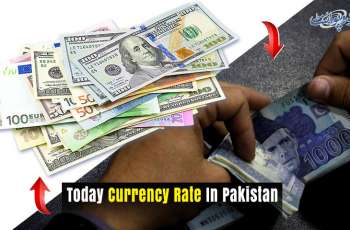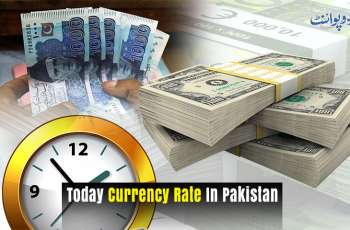Consumer sentiment among Americans, whose spending accounts for 70% of the US economy, is at its lowest in a decade as soaring inflation leaves many with expectations of vastly reduced spending power in the coming years, the University of Michigan said in its closely-watched consumer poll
WASHINGTON (Pakistan Point News / Sputnik - 12th November, 2021) Consumer sentiment among Americans, whose spending accounts for 70% of the US economy, is at its lowest in a decade as soaring inflation leaves many with expectations of vastly reduced spending power in the coming years, the University of Michigan said in its closely-watched consumer poll.
"One-in-four consumers cited inflationary reductions in their living standards in November, with lower income and older consumers voicing the greatest impact," Richard Curtin, UMich chief economist for its survey of consumers, said after its Index of Consumer Sentiment came in at 13.1% lower for November versus October.
UMich's analysis showed that there was growing belief among consumers that no effective policies have yet been developed by those in authority to reduce the damage from surging inflation in an economy rebounding aggressively from the nearly two-year long coronavirus pandemic.
"The description that inflation would be 'transient' has the undertone that consumers could 'grin and bear it' as economic policies counted on a quick and automatic self-correction to supply and labor shortages," Curtin said. "Instead, the pandemic caused economic dislocation unlike any prior recession, and has been intertwined with partisan interpretations of economic developments."
If there was a caveat to the worrisome mood among consumers, it was political partisanship as supporters of President Joe Biden and his Democratic Party seemed more accepting of the current inflationary situation versus his opponents tied to the Republican Party, the UMich poll showed.
"The partisan differences in perceptions were not minor, but were large and equal in size," Curtin said. "The stylized difference is that one side favors maximizing economic growth and efficiency, the other side on maximizing distributional equity and fairness. Such legislative challenges are won or lost by extreme partisan support drawn from both sides of the aisle. Such extremes, however, make achieving their policy goals much more important than providing effective counter measures to ongoing economic hardships."
Prior to the UMich data, the Labor Department reported that the US Consumer price Index, which represents a basket of products ranging from gasoline and health care to groceries and rents, rose 6.2% during the year to October. It was the fastest growth of the CPI since November 1990, an acceleration driven mostly by pump prices of fuel running at seven-year highs.
The US economy shrank by 3.5% for all of 2020 due to shutdowns and other disruptions caused by the COVID-19 crisis. Growth this year has been spotty, with an annualized 3.5% expansion in the first quarter, 3.6% in the second and 2.0% in the third.
The Federal Reserve announced in March that it expected a 6.5% economic expansion for all of 2021 and has not changed its target despite the uneven growth in the past three quarters. The problem for the Fed though is inflation as wages and the prices of almost everything have soared from the lows of the pandemic.



